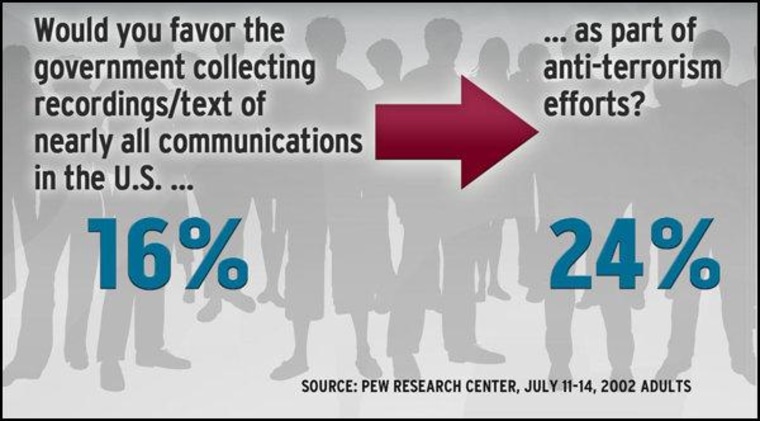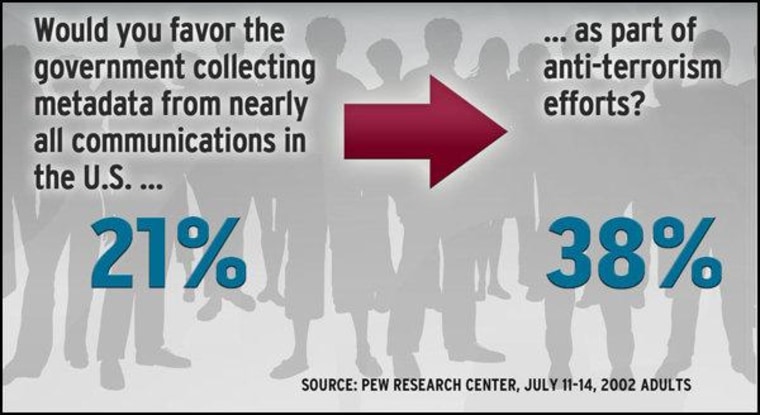Last night Rachel highlighted a Pew study that showed Americans are more willing to sacrifice their privacy to domestic surveillance if it's in the name of preventing terror attacks. The graphics were so clear I wanted to reshare them here.
The study, in a nutshell, tested how framing domestic surveillance with different words changed how people described their feelings about it. So do people care more if it's "metadata" or "content?" Or does it matter if it's your phone or your e-mails that are being watched? Depending on how they framed the question, they were able to generate found a 25-point discrepancy in public response.
Combined in this way, respondents who heard the program described as collecting only “data such as the date, time phone numbers and e-mails… with court approval as part of anti-terrorism efforts” were the most supportive: 41% said they would favor this kind of program. By contrast, only 16% favored a program they heard described as collecting recordings of phone calls or the text of emails with no mention of either courts or the goal of fighting terrorism – fully 25-points lower than support when these other considerations are mentioned.
Since last night's story was about data collected ostensibly for anti-terror purposes being used for general crime investigations, we focused on how public opinion changes when the purpose of the surveillance is anti-terror or not:

